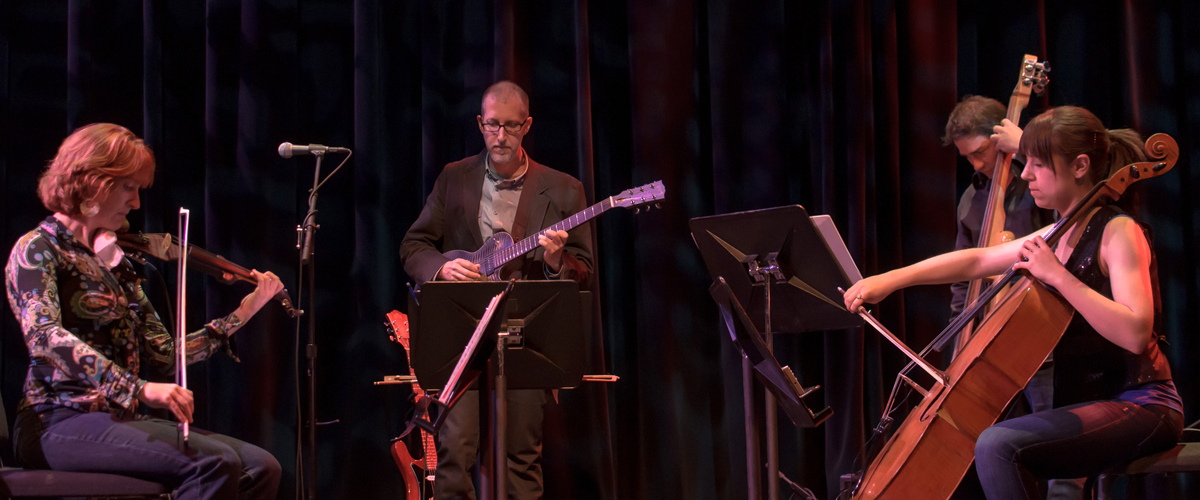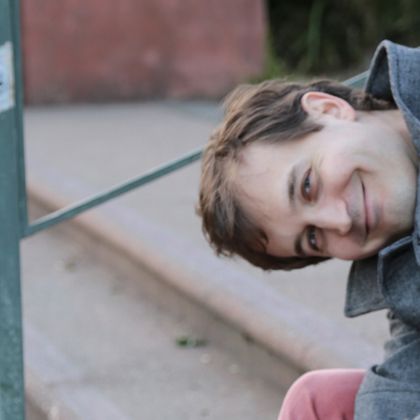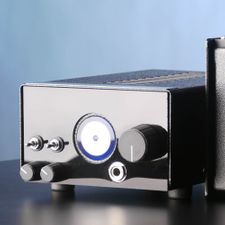Photo CC by David D'Agostino on Flickr
The “Indie Rock”-ification of Chamber Music, Part 2: Culture
In Part 1, I talked about some of the economic implications of the indie model increasingly being adopted by classically trained chamber musicians. Here, I want to look at some of the cultural trends involved. While the general economic climate certainly played a role in creating this movement, I think changing cultural shifts are just as important.
The end of the culture wars
Part of the reason I think indie classical has flourished is that the rift between traditionally highbrow (classical, modernist, etc) and lowbrow (pop, folk) genres has essentially disappeared. While highbrow artists from time immemorial have drawn upon popular or folk styles, there has always been the assumption that the purpose was to make something better, somehow more refined.
It’s true that other generations have proposed a kind of contrarian “nobrow” equivalency or reversal of genres but usually as a means to stir up controversy. Indie classical still cherishes the distinction between the highbrow and the lowbrow, but the distinction is no longer stylistically defined, which is a historical first. And not just in theory, but in practice. Alarm Will Sound’s well-known album of Aphex Twin covers is a good example. The Magik*Magik Orchestra regularly records with indie rock bands. The Family Crest describes itself as a orchestral indie rock band with a rotating cast of some 250 musicians. Genre crossing has become an intuitive step for many groups.
Although it’s a cliché, I need to give credit to the Internet for this opening up of genres. When you’re bombarded by a pluralistic musical world that includes not only 700 years of the Western canon but folkloric, classical, and pop music from cultures around the world, it makes sense that you start to question the inherent superiority of one genre over the other.
Audience perception of classical music
Part of the reason indie classical works is that classical music has largely lost its stigma as an entitled, stuck-up affair. I think all the hand-wringing about classical music being too elitist is passé. The people who still think classical music is an elitist waste of time aren’t going to go to cultural events anyway, no matter how “accessible” you try to make them. Besides, people like elite artistic experiences (though they use the positive version of the word: exclusive), that’s how they form communities around them, that’s why they care about art. Accessible art is like riding the bus: there’s absolutely no way to make it sexy.
Elitism has been a big part of the “underground” pop music scene of the last few decades, where 20-somethings pride themselves on their knowledge of obscure bands and deride those who are uninformed. After all, this is the very definition of a hipster (Question: “How does a hipster screw in a lightbulb? Response: “Oh, you mean you don’t know?”). Why do people crave exclusive experiences? Because the purpose of listening to music is to bond with a community. If that community gets too big, it no longer feels special.
It wasn’t cool to like classical music 15 years ago. Today, classical music is no longer an overbearing cultural threat, so it’s no surprise that people are rediscovering the genre (if not necessarily the standard canon). The communities are of a manageable size, and getting into indie classical is no more difficult than getting into shoegaze or mumblecore or 8-bit or dubstep or any of the other indie subgenres floating around.
Thus, what we have is a grassroots cultural movement that reflects a real artistic desire in the general population, or at least those of a certain age group. Indie classical may not be drawing stadium-packing crowds, but there is a steady stream of interest, proving that classical music is, in fact, a living, breathing, 21st-century genre.
Twenty years from now
In indie classical, we have a vibrant cultural movement that, like most cultural movements, isn’t a great fit with 21st-century capitalism and reflects the growing income disparity problem that we see throughout society. It emphasizes the development of a set of entrepreneurial skills that have been absent from classical music for a long time and it encourages innovation, but it doesn’t reward that innovation in a material sense and it hasn’t come up with a clear model for collective action that might allow it to do so.
This leaves me asking myself, what prospects will indie classical musicians have twenty years from now? Presumably, at some point millennial musicians will stop wanting to play for free or next to free because they have families to support or other life goals. Will indie classical music give us a stepping stone into some other, more stable artistic employment, or are we looking at a form of disposable music in which groups can only hope to survive for a few years before disappearing into oblivion, their members no better off than before?
There’s clearly going to be some of both, and I think the musicians that end up succeeding are going to do so either because they have an innate business sense or they recognize the importance of not reinventing every wheel. A certain sense of pride comes from the scrappy, do-everything-yourself model common in indie classical, but all the economic evidence suggests that larger, collective organizations are more viable. We eventually need to work together and with “non-indie” classical organizations in order to succeed in the long run. Great indie classical musicians need to develop models of collective action, partnering with great arts administrators, existing ensembles, publicists, marketing professionals, and patrons of the arts.
It’s maybe not sexy to suggest that the spunky indie classical movement should form strategic alliances with established groups. But I do think the missing piece of the puzzle right now is the connection between the new and the established. There’s a lot of value already in existence in the art world, and to succeed on the long run we need a solution that doesn’t involve every generation rebuilding everything from scratch.
I’m envisioning a scenario where eventually the transition from indie to established will be smoother. Indie groups will collaborate with orchestras or established chamber groups or opera companies to reach new audiences, embark on projects neither could have done alone, and remain relevant to the communities they live in. Entrepreneurial musicians will be rewarded by frameworks that recognize and build upon their contributions. Musicians with different skill sets will be able to find a niche that makes best use of what they have to contribute. And then, as the indie and establishment trends continue to evolve in this way, they’ll engender a diverse scene of rich, interconnected musical experiences.


